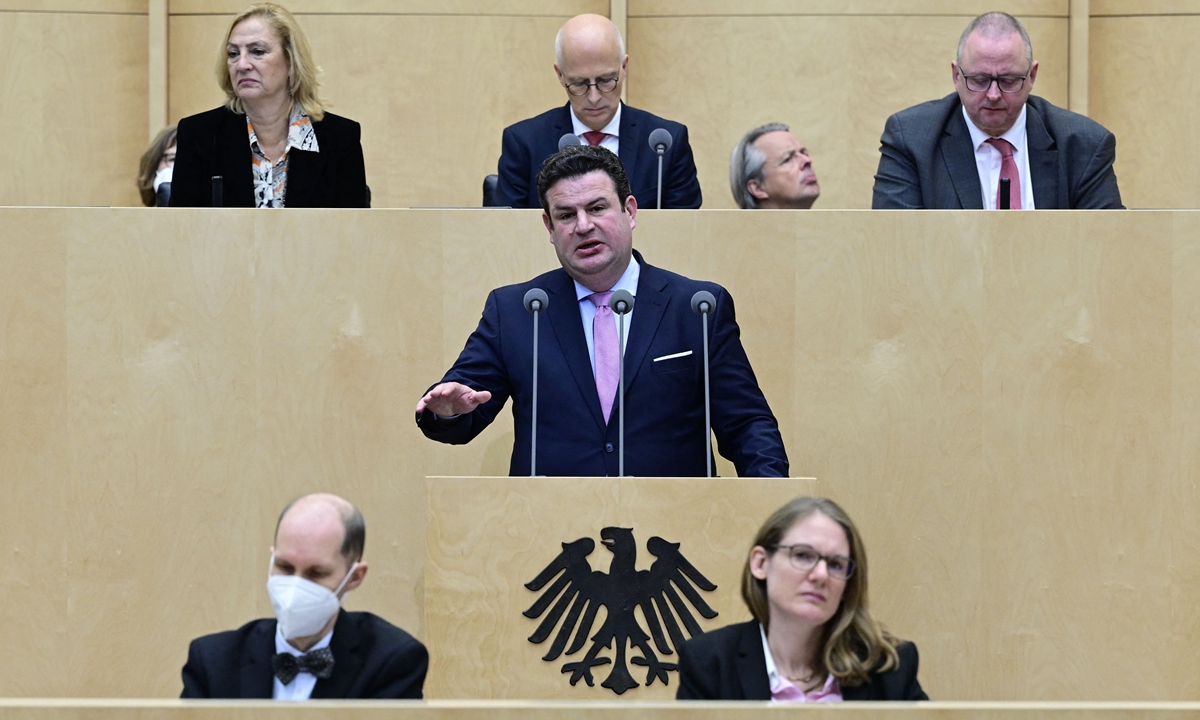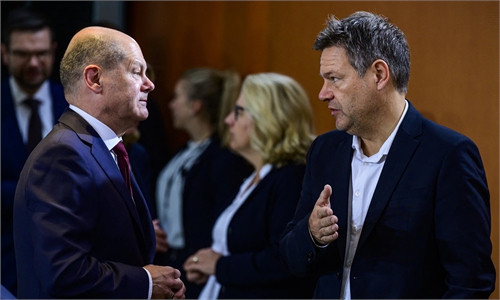
German Minister of Labor and Social Affairs Hubertus Heil (center) gives a speech during an extraordinary session at the German Federal Council on November 14, 2022 in Berlin. The session was focusing on immediate aid for the month of December and the so-called Buergergeld, a minimum allowance provided by the state for unemployed people, as Germany faces a cost-of-living crisis. Photo: AFP
Germany will make it easier for skilled workers to immigrate, paving the way for the "most modern immigration law" in the history of the country, the government said on Wednesday.In the future, people with "high potential" are to be allowed to immigrate to Germany, even if they do not have a job yet. To this end, a so-called "opportunity card" is to be introduced, based on a points system.
"This is urgently needed," Minister of the Interior Nancy Faeser said when she presented the plans. The COVID-19 crisis has "massively exacerbated staff shortages in many sectors."
In the middle of 2022, Europe's largest economy was lacking more than half a million skilled workers across all occupational groups, according to the German Economic Institute (IW). The social and healthcare sectors were the worst affected.
"We want skilled workers to come to Germany quickly and get a head start," Faeser said, adding that bureaucratic hurdles must be "cleared out of the way."
Despite the acute labor shortage, the number of temporary workers from countries outside the European Union (EU) registered in Germany has already more than tripled over the past decade, according to the Federal Statistical Office (Destatis).
To reinforce the trend, income thresholds for the Blue Card, which enables highly skilled non-EU professionals to live and work in the EU, are to be lowered. Educational migration to Germany is also to be facilitated.
"In the competition for talent and helping hands, we are offering new, and above all easier, ways to work in Germany," Minister of Education Hubertus Heil said, adding that the shortage of skilled workers should not become a "permanent brake on growth."
The number of people in employment in Germany rose to an all-time high of 45.7 million in October, up 428,000 year-on-year, the Destatis said.
Meanwhile, the country's unemployment rate remained unchanged at 5.3 percent in November, according to data from the Federal Employment Agency (BA) also published on Wednesday.
Xinhua



